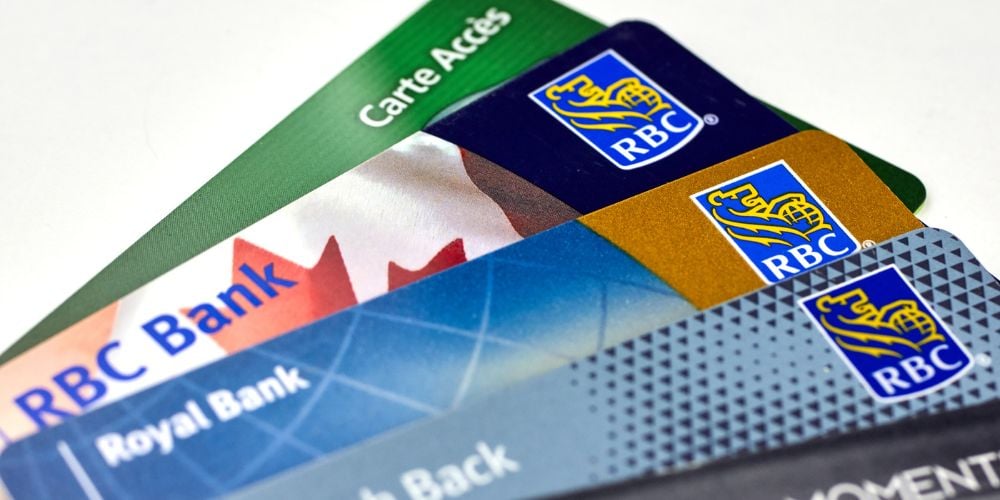Understanding the credit reporting process and its impact on financial decisions is crucial for RBC customers.
When seeking loans, mortgages, or credit cards, financial institutions like RBC rely on credit bureaus to assess creditworthiness.
But, do you know exactly what credit bureau does RBC use?
In this comprehensive guide, we will uncover the credit bureau used by RBC and explore its implications for credit scores, loan applications, interest rates, and more.
The Relationship Between RBC and Credit Bureaus
RBC, as one of Canada’s largest lenders, relies heavily on credit bureaus to obtain credit information about its customers.
Credit bureaus play a pivotal role in providing financial institutions with comprehensive credit reports that help determine an individual’s creditworthiness.
These reports contain details on an individual’s payment history, outstanding debts, credit utilization, and public records.
Credit bureaus act as repositories of financial information, collecting data from various sources such as lenders, creditors, and public records.
This data is then analyzed and compiled into credit reports, offering a snapshot of an individual’s credit profile.
The credit reports are an essential tool for lenders, including RBC, to assess an individual’s risk level before extending credit.

What Credit Bureau Does RBC Use? The Reveal
In Canada, there are two major credit bureaus: TransUnion and Equifax. Based on our research, RBC primarily uses Equifax for credit reporting purposes.
RBC’s choice of credit bureau may be influenced by various factors, such as the bureau’s reputation, data accuracy, and industry partnerships.
While RBC primarily uses Equifax, it is worth noting that they may also consult TransUnion in certain cases.
Equifax is one of the leading credit bureaus globally, and has been operating in Canada since 1919. It gathers and maintains credit information on millions of individuals and businesses across the country.
Equifax receives data from lenders, credit card companies, collection agencies, and other financial institutions. Their comprehensive credit reports, which include credit scores, are highly regarded by lenders like RBC.
Understanding the Implications
The credit bureau used by RBC has a direct impact on customers’ credit scores, loan applications, interest rates, and credit limits.
A key factor in determining creditworthiness is an individual’s credit score, which is influenced by information provided to credit bureaus. RBC uses this information to assess the borrower’s risk profile, repayment history, and financial capabilities.
When applying for loans or mortgages, RBC relies on credit reports from the chosen credit bureau to evaluate an individual’s creditworthiness. A positive credit history with timely payments and low outstanding debts can increase the likelihood of loan approval.
Additionally, credit scores also play a role in determining interest rates and credit limits, with higher credit scores often resulting in better terms and conditions.
Credit scores range from 300 to 900, with a higher score indicating lower credit risk. A credit score of 650 or higher is generally considered good, while a score below 650 may lead to more stringent lending terms.
RBC, like other lenders, sets its specific credit score thresholds based on internal policies and risk assessments.
Comparing Credit Reporting Agencies
While RBC primarily uses Equifax, it is essential to understand the similarities and differences between TransUnion and the chosen credit bureau. Both Equifax and TransUnion gather credit information from various sources, including lenders, creditors, and public records. However, they may have slight variations in their algorithms and credit scoring models.
TransUnion is another major credit bureau in Canada, providing credit reporting services to individuals and businesses across the country.
As with Equifax, TransUnion gathers credit information and compiles comprehensive credit reports.
RBC may consult TransUnion as a secondary source of credit information in certain cases, adding an extra layer of verification to their evaluation process. It is advisable for RBC customers to regularly monitor their credit reports from both bureaus, Equifax and TransUnion.
This practice ensures accuracy and enables individuals to identify any potential discrepancies that may have an impact on their creditworthiness.
Inaccurate information can be disputed and corrected to maintain a healthy credit profile.

Pro Tips for Managing Your Credit Score with RBC
Maintaining a good credit score is essential for RBC customers as it positively impacts their relationship with the bank.
A higher credit score opens up access to better financial products and favorable interest rates. To improve credit scores, individuals should focus on the following strategies:
- Pay Bills on Time: Consistently paying bills on time is one of the most effective ways to build and maintain a good credit score. Late payments or missed payments can negatively impact credit scores and signal potential financial risk to lenders like RBC.
- Reduce Outstanding Debts: Lowering outstanding debts helps decrease credit utilization, which is a critical factor in credit scoring models. Aim to keep credit card balances below 30% of the available credit limit to demonstrate responsible credit management.
- Avoid Unnecessary Credit Utilization: Taking on excessive credit can be seen as an indicator of financial instability. Only apply for credit when necessary and avoid overextending credit lines.
- Monitor Your Credit Report Regularly: Keep a close eye on your credit report from both Equifax and TransUnion to ensure accuracy. Report any discrepancies or inaccuracies promptly.
- Maintain a Healthy Debt-to-Income Ratio: Keep your debt-to-income ratio at a manageable level. A high ratio indicates that a significant portion of your income is being used to service debt, which may raise concerns for lenders.
Frequently Asked Questions
What credit bureau does RBC use for checking credit scores?
RBC primarily uses Equifax for credit reporting, but may consult TransUnion in certain cases.
Can RBC customers access their credit reports from this bureau?
Yes, RBC customers can request a copy of their credit report from Equifax to review their credit history and ensure accuracy.
How often does RBC update credit information with the chosen credit bureau?
RBC provides regular updates to the credit bureau, usually on a monthly basis.
Are there ways to dispute inaccuracies on credit reports used by RBC?
Yes, RBC customers have the right to dispute any inaccuracies on their credit reports. They can contact the credit bureau directly to initiate the dispute resolution process.
Conclusion
Understanding the credit bureau used by RBC and its implications is crucial for customers seeking financial products.
RBC primarily relies on Equifax for credit reporting, which significantly impacts credit scores, loan applications, interest rates, and credit limits.
By staying informed about credit reporting agencies, customers can proactively manage their credit scores, improve their creditworthiness, and make more informed financial decisions.
Remember to regularly monitor your credit report and seek professional guidance if needed.
By maintaining a positive credit history, you can enhance your relationship with RBC and unlock better financial opportunities.
Building a strong credit profile takes time, but the rewards in terms of financial freedom and flexibility are worth the effort.


 Tags:
Tags:










